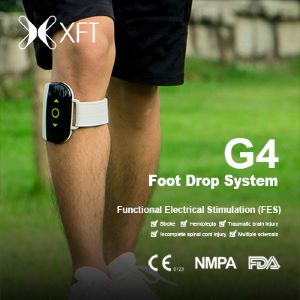Measurement
Post-Simulation Debriefing Methods: A Systematic Review
Wednesday, November 1, 2023
10:10 AM - 10:16 AM
Location: VIRTUAL

Michele T. Favolise, PT, DPT, CFE (she/her/hers)
Associate Professor
American International College
Springfield, Massachusetts, United States
Presenting Author(s)
Objective(s): The purpose of this systematic review was to review current post-simulation debriefing tools and determine the most effective tool that can be applied to post-simulation debriefing for PT students (SPT).
Data Sources: Investigators independently performed the initial review based on defined search criteria. Databases included EBSCO, Gale On File, Medline, Pubmed, and CINAHL Complete from January 2012-March 2021. Initial search terms used “debriefing assessment for simulation in healthcare,” and “assessment tools” paired with “debriefing in simulation.”
Study Selection: Inclusion criteria consisted of Randomized controlled trials (RCTs) between January 2012-March 2021 involving a specific debriefing assessment tool, published in English. Investigators independently graded 11 RCTs meeting inclusion criteria. Investigators met to discuss independent grading using the MacDermid Scale and compare scores. Discrepancies were solved by a second review of the literature and discussion among all authors until a consensus was made.
Data Extraction: Inter-rater reliability was .991 among all evaluators on the final MacDermid Scale scores of the graded articles. Intra-rater reliability was .966 among single evaluators. Of the eleven studies found relating to the research question, two were excluded due to the lack of randomization and decreased relevance; one study was excluded due to low quality, seven were considered moderate quality, and one was high quality.
Data Synthesis: Outcome measures varied among the studies. Those demonstrating significant pre/post-test scores included: ANTS, satisfaction scoring, COWS, and the REsPoND. Measures that did not exhibit significant changes in pre/post-test scores included the DASH, SAGAT, OSAD, and Plus Delta. Results concluded overall debriefing methods are effective in skill retention and problem-solving. Limitations to this review included a lack of research showing the efficacy of these debriefing tools and those related specifically to Physical Therapy. The lack of available literature regarding specific debriefing tools made the comparison of reliability and validity among various studies difficult.
Conclusions: Based on this systematic review, the use of debriefing tools with healthcare providers and students has the potential to increase technical skills.
Author(s) Disclosures: No Disclosures or conflicts
Data Sources: Investigators independently performed the initial review based on defined search criteria. Databases included EBSCO, Gale On File, Medline, Pubmed, and CINAHL Complete from January 2012-March 2021. Initial search terms used “debriefing assessment for simulation in healthcare,” and “assessment tools” paired with “debriefing in simulation.”
Study Selection: Inclusion criteria consisted of Randomized controlled trials (RCTs) between January 2012-March 2021 involving a specific debriefing assessment tool, published in English. Investigators independently graded 11 RCTs meeting inclusion criteria. Investigators met to discuss independent grading using the MacDermid Scale and compare scores. Discrepancies were solved by a second review of the literature and discussion among all authors until a consensus was made.
Data Extraction: Inter-rater reliability was .991 among all evaluators on the final MacDermid Scale scores of the graded articles. Intra-rater reliability was .966 among single evaluators. Of the eleven studies found relating to the research question, two were excluded due to the lack of randomization and decreased relevance; one study was excluded due to low quality, seven were considered moderate quality, and one was high quality.
Data Synthesis: Outcome measures varied among the studies. Those demonstrating significant pre/post-test scores included: ANTS, satisfaction scoring, COWS, and the REsPoND. Measures that did not exhibit significant changes in pre/post-test scores included the DASH, SAGAT, OSAD, and Plus Delta. Results concluded overall debriefing methods are effective in skill retention and problem-solving. Limitations to this review included a lack of research showing the efficacy of these debriefing tools and those related specifically to Physical Therapy. The lack of available literature regarding specific debriefing tools made the comparison of reliability and validity among various studies difficult.
Conclusions: Based on this systematic review, the use of debriefing tools with healthcare providers and students has the potential to increase technical skills.
Author(s) Disclosures: No Disclosures or conflicts
Learning Objectives:
- Identify clinical simulation debriefing assessment tools.
- Determine debriefing tools appropriate for the healthcare profession simulation.
- Identify commonly used debriefing assessment tools.

.jpg)
